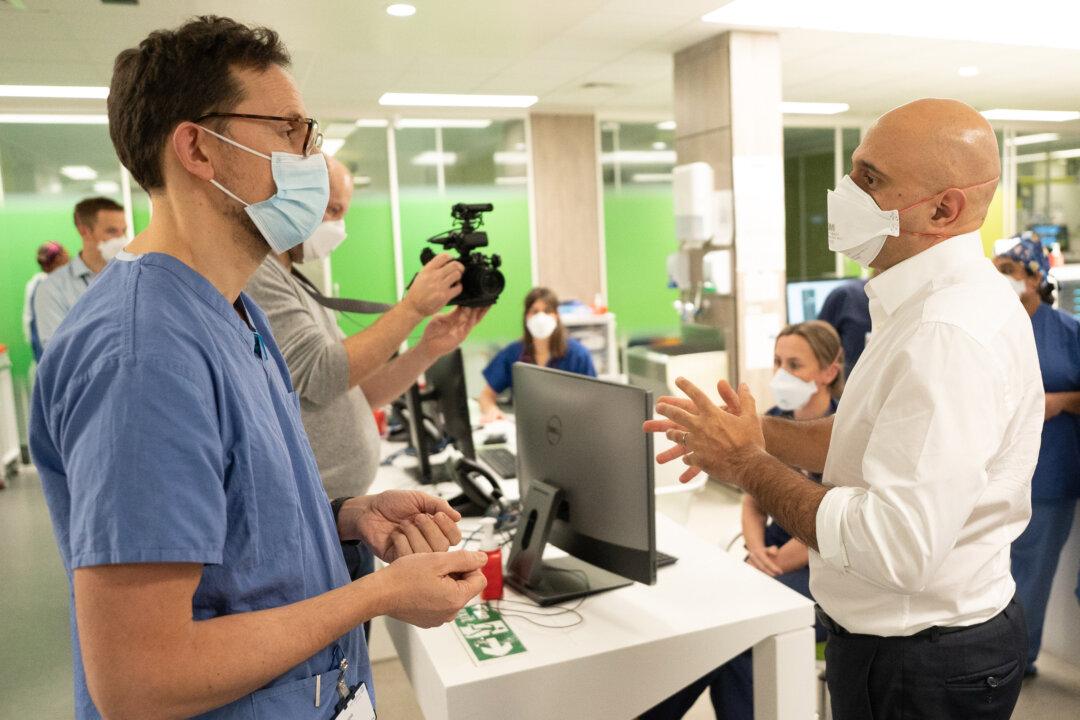An NHS doctor told Health Secretary Sajid Javid on Friday that he’s not happy with the government’s CCP virus vaccination mandate for health workers that is due to take effect in April.
The vaccination mandate has already come into effect for care home staff, volunteers, and visitors from Nov. 11. Parliament approved the mandate for frontline NHS workers on Dec. 14.





